VGHW Feature: 13 Books for Japanese RPG fans
Welcome to Video Game History Week! In honour of the first anniversary of my book Fight, Magic, Items: The History of Final Fantasy, Dragon Quest, and the Rise of Japanese RPGs in the West, Astrolabe is celebrating video game history with a plethora of stories, features, lists, and interviews about video games, the people who make them, and the people who write about them.
Fight, Magic, Items is on sale! Use the code “LEVELUP” at checkout to get 20% off a physical copy through the Running Press website!

From Final Fantasy to Phantasy Star, Japanese RPGs have been a huge source of inspiration for a whole generation of science fiction and fantasy writers. Originating in the early ’80s thanks to the work of brilliant game designers like Yuji Horii and Hironobu Sakaguchi, JRPGs have a storied history—both in their homeland and in the West. If you’re a gamer of a certain age, you’ll no doubt remember waiting with bated breath for the translated version of Chrono Trigger to make it overseas from Japan, or sitting on the schoolyard comparing notes about the best materia combinations in Final Fantasy VII or beating Wiegraf in Final Fantasy Tactics.
Just as we’ve been inspired by the games from Japanese creators, they in turn were inspired by western works such as Wizardry and Ultima, Dungeons & Dragons and Michael Moorcock. The potential for crossover between JRPGs and genre literature is limitless, and today I’ve gathered together 13 SFF books I know JRPG fans will love.
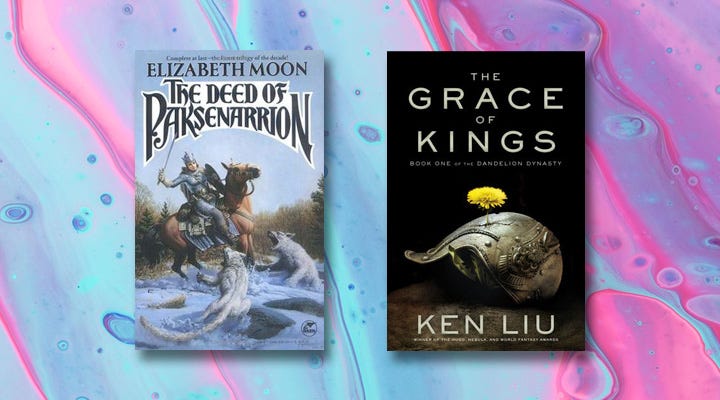
Like airships? Try The Grace of Kings by Ken Liu
The first volume in Liu’s series The Dandelion Dynasty does many wonderful things—not the least of which include its sprawling yet intricate worldbuilding and a complex narrative centered around two very different main characters—but what stuck out most to me was how immensely the airships peppering the skies of his historically inspired world reminded me of those in video games—particularly Final Fantasy XII’s ingenious melding of epic fantasy with science fiction elements. Come for the airships, stay for the multi-generational family drama.
JRPG Comparable: Final Fantasy XII (PlayStation 2, 2006)
Like kick-ass warriors? Try The Deed of Paksenarrion by Elizabeth Moon
Not many protagonists can kick ass quite like Valkyrie Profile’s Lenneth, but the titular hero of Elizabeth Moon’s The Deed of Paksenarrion is one of them. As though ripped right out of a Japanese RPG from the ’90s, this military fantasy trilogy begins with Paksenarrion Dorthansdotter leaving her home village to flee an arranged marriage and join a mercenary group. Like Valkyrie Profile, The Deed of Paksenarrion deeply explores many of the foundational themes of myth-based storytelling, but RPG fans who love grinding will also be right at home with the novel’s many scenes depicting fighting, training, and general warfare.
JRPG Comparable: Valkyrie Profile (PlayStation, 2000)

Like rebels fighting against an evil empire? Try An Ember in the Ashes by Sabaa Tahir
A young woman joins a group of rebels and fights to take down an ascendant empire: this description could easily and concisely describe both Final Fantasy VI and Sabaa Tahir’s popular YA fantasy An Ember in the Ashes. Like the game, Tahir’s novel focuses on the bleak beauty of a world pressed under the iron thumb of an empire, and inspires readers with a story about humanity joining together to create a better world. Wrapped within this rebellious narrative is Laia’s fateful meeting with a soldier named Elias. If you ever hoped for Terra and Celes to fall in love while taking Kefka down, this is the book for you.
JRPG Comparable: Final Fantasy VI (SNES, 1994)
Like far-reaching space operas? Try Empress of Forever by Max Gladstone
Few book series, let alone games, can claim a scope as expansive as Tetsuya Takahashi’s Xenosaga trilogy. Max Gladstone’s Empress of Forever comes pretty close, though—particularly for a standalone novel. It’s a rip-roarin’, time traveling adventure that whisks brilliant innovator Vivian Liao from one-end of an interstellar war to another. It features a ragtag group of heroes, warrior monks, sentient robots, and a big bad boss that can annihilate planets with a single thought. Convert it from book to game form, and Empress of Forever would fit right in alongside the other classic JRPGs from the PlayStation 2 era.
JRPG Comparable: Xenosaga (PlayStation 2, 2003)

Like dungeon crawling with an emphasis on puzzle solving and death? Try Gideon the Ninth by Tamsyn Muir
Gideon the Ninth is a gothic science fantasy that blends elements of Agatha Christie’s And Then There Were None—a bunch of strangers stranded in a closed environment, having to work together or compete to solve a mystery—with about a million other disparate ingredients (horror, necromancer, sword fighting, Simpsons references), to supremely satisfying results. It’s funny, scary, and pulse-poundingly exiciting, and once you turn the first page, you won’t stop reading until it’s done. Just like the best dungeon-crawling JRPGs, Gideon the Ninth is all about delving deeper, exploring further, overcoming obstacles, and thwacking big bad monsters until they’re dust.
JRPG Comparable: Breath of Fire: Dragon Quarter (PlayStation 2, 2002)
Like tight-knit parties of adventurers? Try Kings of the Wyld by Nicholas Eames
Few games have managed to capture a sense of the-world-is-my-oyster adventure as well as Grandia. Where that game features a young crew of new adventurers, Eames’ Kings of the Wyld fast-forwards to the other end of the spectrum: long past his adventuring days, Clay “Slowhand” Cooper has to get the band back together for one last gig. Only, they’re not rock stars—they’re a mercenary band known as “The Kings of the Wyld,” and they’ve got a hell of a reputation to uphold. Despite very different tones and overall stories, both Grandia and Kings of the Wyld could equally be described as “adventurous,” “fun,” and “full of heart.”
JRPG Comparable: Grandia (PlayStation, 1999)
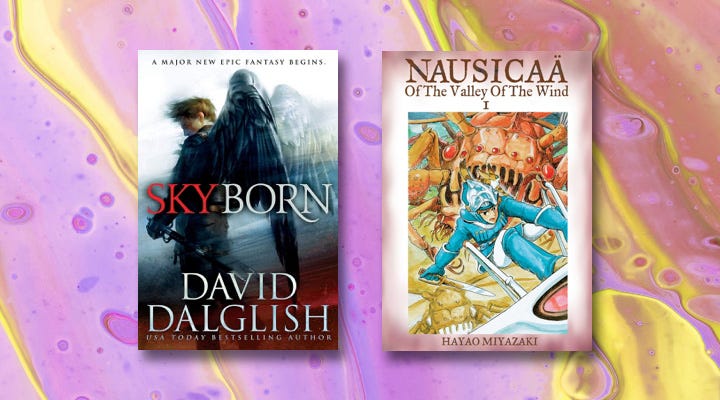
Like adventure? Try Nausicaa of the Valley of the Wind by Hayao Miyazaki
Along with Grandia, few games manage to nail the feeling of being on an expansive adventure quite so well as Lunar: Silver Star Story Complete. Hayao Miyazaki’s Nausicaa of the Valley of the Wind manga (which expands greatly upon the story from the anime film) helped put the legendary artist and filmmaker on the map, and he’s been producing brilliant and timeless works of fantasy ever since. Not only does the manga share themes of post-apocalyptic societies with Lunar, they’re also both adventurous coming-of-age stories that tackle environmentalism and explore the consequences of power.
JRPG Comparable: Lunar: Silver Star Story Complete (PlayStation, 1999)
Like cities in the sky? Try Skyborn by David Dalglish
I’m a huge Chrono Trigger fan, but I’m going to give the stage to someone else to convince you why you should read Skyborn. In the author notes at the back of the book, Dalglish himself cites Chrono Trigger‘s skybound Kingdom of Zeal and JRPGs as a primary inspiration for his Seraphim trilogy. “Ever since third grade I’ve wanted to tell a story about a civilization in the sky,” he says. “Something about the imagery has always fascinated me, and it started with the floating land of Zeal from an old Super Nintendo RPG called Chrono Trigger (which, coincidentally, is still my favorite game of all time).” Dalglish illustrates the direct line his love of JRPGs had on worldbuilding and storytelling his series—it started with an idea cribbed from a game he loved, and from there, grew into something bigger.
JRPG Comparable: Chrono Trigger (SNES, 1995)

Like magic-filled modern settings? Try The City of Lost Fortunes by Bryan Camp
JRPGs tend to be set in fantastical secondary worlds, but the Shadow Hearts series, which peaked with its second entry, Shadow Hearts: Covenant, is set in a version of our Earth rich in magic and riddled with real historical characters like Roger Bacon and Nicholas II of Russia. Bryan Camp’s debut novel is set an a magic-filled New Orleans that evokes the best of Tim Powers, and stars a street magician who has many secrets and a deific family lineage.
JRPG Comparable: Shadow Hearts: Covenant (PlayStation 2, 2004)
Like coming of age stories? Try The Poppy War by R.F. Kuang
Fantasy novels and JRPGs are chockfull of coming-of-age stories, and R.F. Kuang’s The Poppy War and Trails in the Sky FC are among the best in their respective mediums. They both give a glimpse into the life of young women growing into power during a politically tumultuous times. When The Poppy War‘s young Rin wins admittance to the most prestigious academy in the Empire, she sets off a fateful series of events that will change the world forever. The Poppy War is a powerful book about revolution, identity, and the cost of war to one’s humanity.
JRPG Comparable: Trails in the Sky FC (PlayStation Portable, 2011)
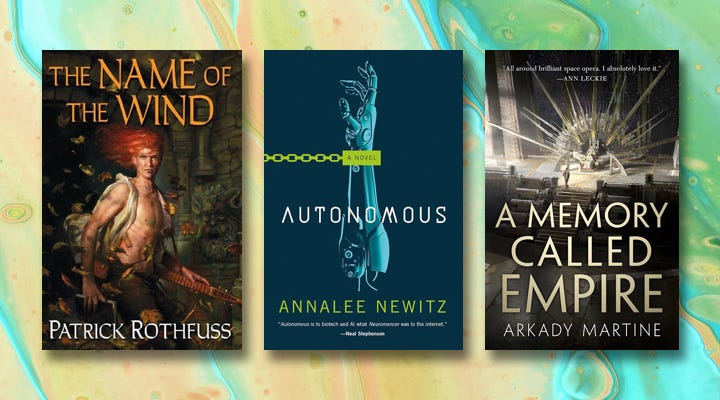
Like byzantine politics? Try A Memory Called Empire by Arkady Martine
The Suikoden series established itself during the ’90s its politically-charged and labyrinthine stories, characters you loved (and loved to hate), and rich world building. A Memory Called Empire uses many of these same building blocks to tell its story, and does it astonishingly well—a debut, it is also one of the most critically-acclaimed novels of 2019. Mahit is a young ambassador caught up in the machinations of a sprawling empire, and just like Riou and Jowy in Suikoden II, the path to victory will take many forms.
JRPG Comparable: Suikoden II (PlayStation, 1999)
Like unreliable an narrator? Try The Name of the Wind by Patrick Rothfuss
You’re not alone if Final Fantasy VII was your first gaming experience with an unreliable narrator. The classic PlayStation game created a huge uptick in popularity for the RPG genre in the ’90s, and many new players had never tackled a game with such a psychologically complex story. Cloud’s altered and misremembered origins are at the center of the epic plot, and millions of gamers were left shocked when they found out the truth about the past he’d been hiding from them. Like Final Fantasy VII, one of the most interesting aspects of Patrick Rothfuss’s popular Kingkiller Chronicles is the way you can never quite trust what narrator and protagonist Kvothe is telling you. Will he turn out like Cloud in the end? Or something entirely different?
JRPG Comparable: Final Fantasy VII (PlayStation, 1997)
Like robots with feelings? Try Autonomous by Annalee Newitz
Who knew that robots with feelings could be so damn compelling? Oh, that’s right, absolutely everyone who played Yoko Taro’s modern classic Nier: Automata (not to mention fans of Astroboy, Wall-E, and, well, you get the idea.) AI is a fascinating emergent technology, and few books provide so much heart and personality to their exploration of the topic as Newitz’s Nebula-nominated debut Autonomous. With all the cleverness of Le Guin and the sheer bite of Atwood, Newitz tackles everything from sentience and humanity to big pharma, wrapping the commentary around a fun adventure full of robots that seem just as human as their flesh and blood counterparts.
JRPG Comparable: Nier: Automata (PlayStation 4, Xbox One and Windows, 2017)
This feature was originally published on the Barnes & Noble SF & F Blog.Support
There are lots of ways to support Astrolabe and my other work. Check ‘em out!
Keep In Touch
Enjoy Astrolabe? Want more SFF and retro gaming goodies? You can find me on Twitter and my website.
Credits
Astrolabe banner photo by Shot by Cerqueira on Unsplash

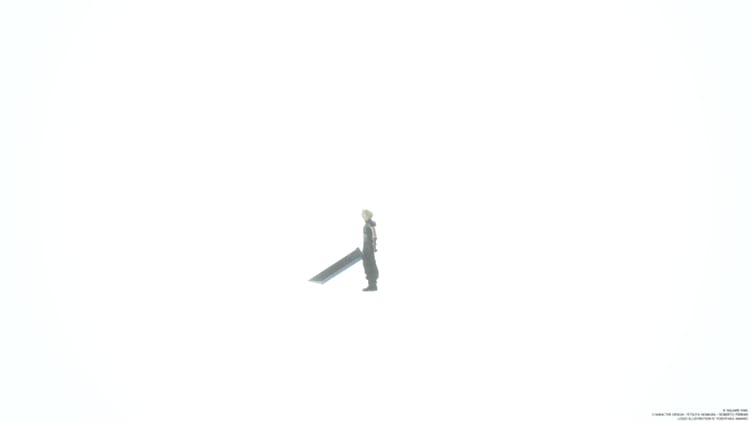

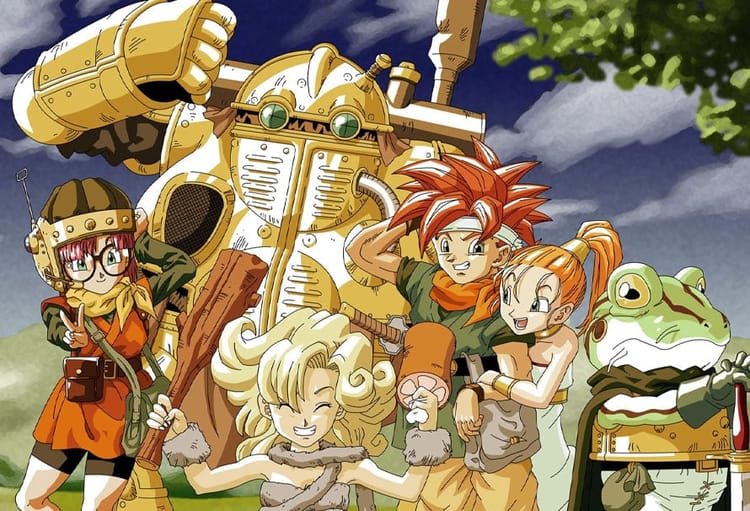
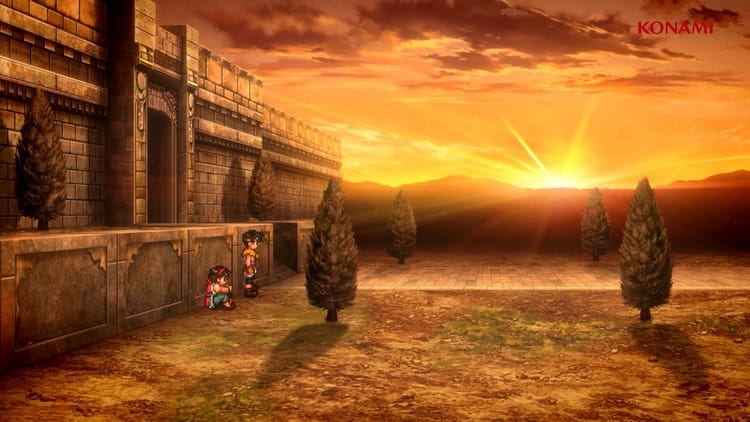
Member discussion